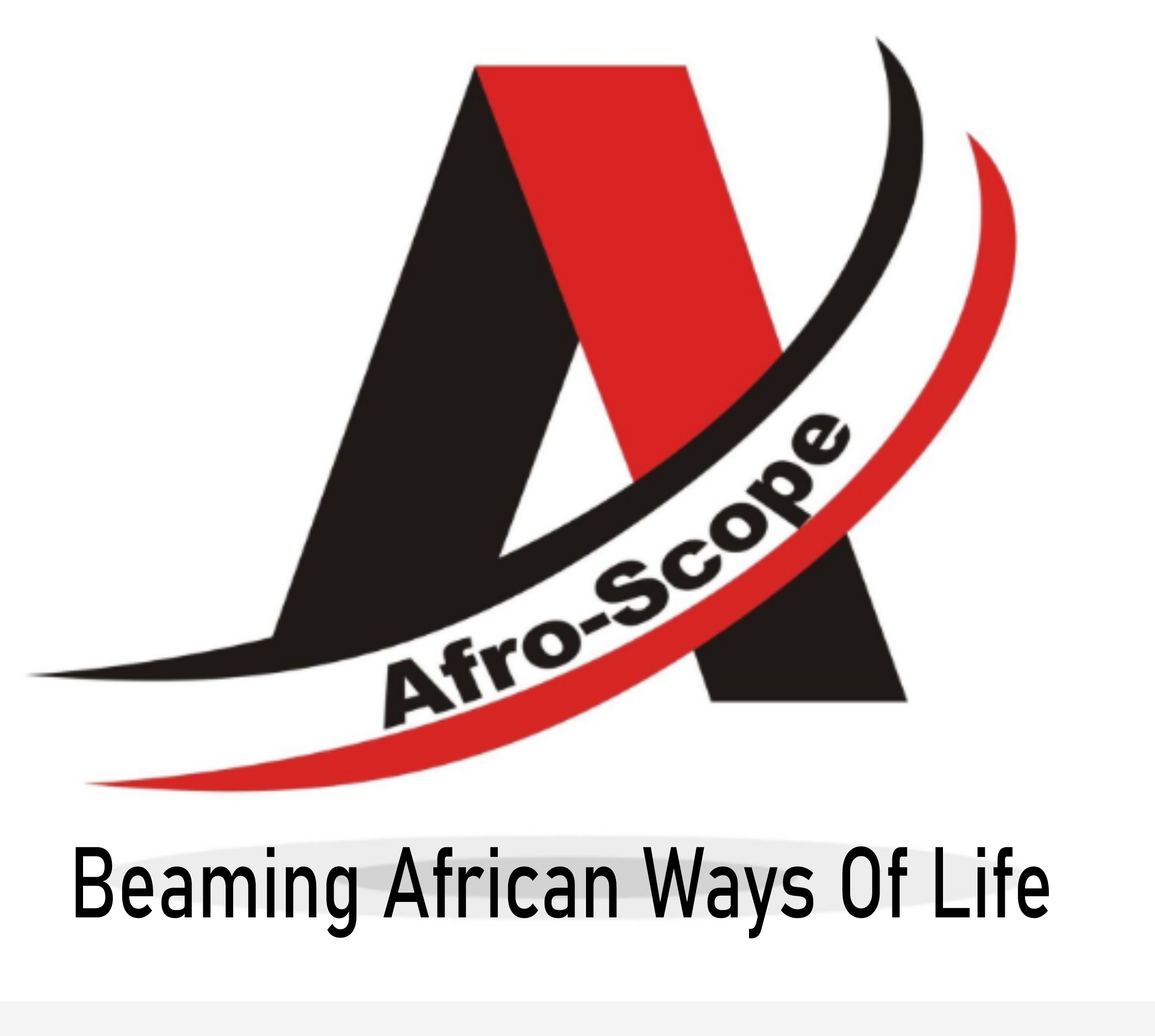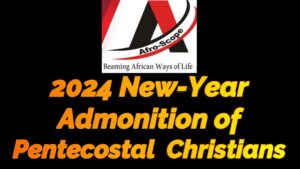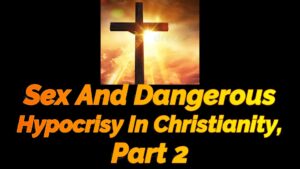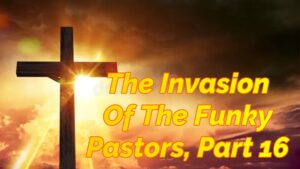October 9, 2022
SubTopics:
- PRAYING IN A TYPICAL TRADITIONAL AFRICAN RELIGION
- SYMBOLISM: WHY ARE AFRICAN RELIGIOUS SYMBOLS DEMONIZED, WHILE SIMILAR WESTERN OR CHRISTIANITY SYMBOLS ARE OKAY?
- WILL IT PLEASE CHRISTIANS TO SAY THAT CHRIST IS THE SUPREME SMALLER GOD; AND WHAT WOULD NON-CHRISTIANS SAY ABOUT THAT?
- A SINFUL CHRISTIAN AND A RIGHTEOUS HEATHEN COMPETE FOR PASSAGE AT HAEVEN’S GATE
Greetings!
This is Harry Agina with “Afro-Scope,” the telescope that beams on Africa and the African Culture. Today, the scope is beaming on African Traditional Religions, with my miniseries, “On The Legitimacy of The African Traditional Religions.” Above, are my subtopics for the rest of the series. I pick subtopics 1 and 2 for today’s edition. Subtopics 4 and 5 are for the next and final edition, but I want to prepare your mind for them today.
In the first edition of this series, I stated my fundamental position about religions. “It’s All About The Chosen Iconic Spirits As The Medium To Reach The Same Almighty God,” I argued. Christianity has Jesus Christ, Islam has Prophet Mohammad, and other religions have their spiritual icons. In edition 2, I brought you “Views From Across Five Continents Of The World” on the legitimacy of all Godly religions. Yes, I always add the word “Godly” in my commentaries. We do know that there are religions that declare that members don’t worship the Almighty God. And there are some that profess to worship God, but they don’t truly worship God.
And yes, I did travel around five continents of the world to sample views on the topic. They included Oceania, Africa, Europe, North America, And Central America. In will repeat my key thematic questions in those two editions, thus: (1) Does Christianity, or Islam, or any other religion have the monopoly of access to the Almighty God? (2) What is it that makes African Traditional Religions, or any other religion illegitimate, or demonic, as some Christians claim?
Of course, my answer to question one is, “Hell doggone no! No religion has such monopoly. No wonder, my theme for edition 2 was that “Obeying God’s ‘Ten Commandments’ Is Your Ultimate Channel To God, And Not Your Religion.” Overwhelming majority of respondents on the five sampled continents agreed with my position. The minority who disagreed have two things in common—most were Christians; and most of those Christians were Africans. In other words, Christians in Africa are too ignorantly Christian! They want to be “more Catholic than the Pope” whose culture brought Christianity to them in Africa. Sadly, they want to do it in all the wrong ways, too! Please check out editions 1 to 3 of the series. The links await you at the end of this.
A lot of what I have said so far in this series has been based on research findings, guided by my views. I supported it all with my commonsense postulations. In the following editions, I will feed you more facts, products of my imagination, plus more postulations.
Chances are that you do have a basic idea on how Christians and Muslims worship God. And perhaps you also know about the modes of worship by the Buddhists and Hindus, and some other religions. I’m about to add to your knowledge if you do not know about worshipping the same Almighty God in a sample African traditional way. So, yes, I want to talk about modes of prayers to God, and I will relate it to symbolism in spirituality and religions. Do remember that this is to make a point about the legitimacy of the African traditional religions. Indeed, it is to make the point that all religions of the world that profess to worship God Almighty are legitimate.
Legitimacy In Symbolism: I will start this with a couple of thematic questions: (1) Why is it that the symbols of African religions are often derogatively defined as idols? (2) How come the symbols of Western religions are not derogatively called idols? These questions are important in my overall argument, and I’ll tell you why, pronto! Symbolism is a major reason why African traditional religions are accused of “worshipping idols.” If I said this once in this series, I have said it a gazillion times that the culprits of this ignorant accusation are mostly Africans themselves. More specifically, the foolishness is masterminded by so-called pastors of a new wave of criminal commercial Christian Pentecostal pastors. And I’m like; ‘O yeah? If so, then all the religions of the world are worshipping idols, including and especially the main accuser, Christianity! Now, don’t get me wrong, though, some religions do not go through their idols to worship God. They do worship their own idols, and not God.
The fact is that one cannot talk about religion without symbols and symbolism. Umm huh, all religions do have symbols, and they all have what the symbols symbolize or represent. Some have animals of various types as their symbols; and others have all manner of elements, including stone and gold. Most, if not all religions, do have more than one symbol. Christianity has the crucifix or the cross as its main symbol. This symbolizes the death of Christ on the Roman ‘Cross.’ Within Christianity, we have other images (sub-symbols, if you will), including one that symbolizes Mary the mother of Jesus. The Catholics kneel before the image of Mary to worship. Mary and Christ are no long on earth as humans. We can never meet them physically, ever! So, their spirits are symbolized by their images.
Essentially, the Catholics go through the spirit of Mary, asking her to intercede between them and Christ. Of course, the ultimate destination of the prayers is Almighty God. So, Mary is supposed to intercede for humans to Christ her son. And Christ is supposed to intercede between Mary and God. In essence, what we have is a situation of two ‘middlemen’ between the Catholics and God—Mary the mother of Christ, and then Christ himself. I am a Christian, but not a Catholic, and I would appreciate it if a Catholic would correct me if I’m wrong on this, please.
Islam has “Crescent and Star”as a main symbol. The main symbol of the Buddhist religion is called golden “Dharma-Wheel,” aka “Dharmachakra.” There are more, depending on sects and other factors within Buddhism. So, it is in the Hindu religion, with “Swastik” as a main symbol. And so also it is with all the other religions of the world. This is not a treatise on the origins and symbolic meanings of the icons and symbols of religions, so I am not going into all those details. Suffice to say that they all symbolize the icons of those religions. As the crucifix symbolizes Christ’s sacrificial death on the cross, so do the symbols of the other religion tell the story of their icons.
African traditional religions have icons and symbols, just like all the other religions. I represent the African religions with the Voodoo religion, which is probably the most known around the world. Voodooism has strong roots in Togo, West Africa. I will soon show its symbol to you. Now, like the other religions, African religious icons are saintly spirits of dead righteous humans! I have major symbols of five religions for you—Christianity, Hinduism, Buddhism, Islamic, and African Voodooism—in that order, thus:
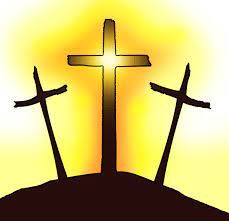
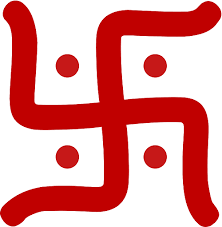
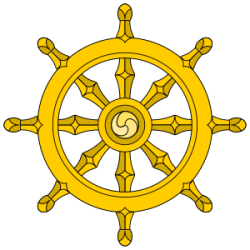
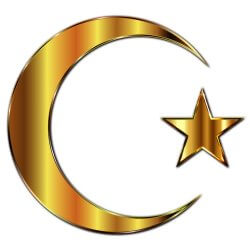
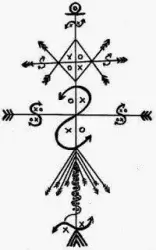
I will now conclude with a repeat of my thematic questions, thus: (1) Why is it that the symbols of African religions are often derogatively defined as idols? (2) How come that the symbols of Western religions are not called idols in the same derogatory way? Discriminatory and ignorant definition of the word ‘idol,’ that’s why! I underline ‘derogatory’ because the word on its own is not necessarily derogatory or bad, until one makes it so. An ‘idol’ in this religious context simply means “an image of an intangible god. It is used as a physical (tangible) representational object of worship.” So, the derogation in the use of “idol” in the African context is based on the false implication that the Africans worship the “idols.” And nothing can be farther from the truth!!! African traditionalists worship the same Almighty God through the “idols” of the icons of their saintly ancestors! That’s exactly what the Christians do, too! Christ is our icon; the crucifix is one of our idols. We are not worshipping Christ or Mary the mother of Christ. We are worshipping God through Christ, and Mary in the case of the Catholics…QED!!!
When the traditionalists worship the same Almighty God, they go through interceding spirits, just like Christians do! Africans go through the spirits of their late righteousforefathers who are now saints, for intercession to reach God. That’s exactly what Christians do, through the spirit of the righteous late human Christ! Any Christian who worships Christ is very ignorant. He or she is disrespecting the Almighty God! Indeed, he/she is worshipping an idol; that’s what Christ is—an idol for Christian! Yeah, I know, Christians believe in Trinity, which makes God, Christ, and Holy Spirit the same. But I insist that not separating them in some regards is wrong. I tell ya, if you give my son more respect than you give, I would be offended; I don’t care how much I love my son. I bet that the same applies to you. Just think about that, would you!
The interceding spirits of all the religions were once humans, who transmuted to spirits after death. They have two common characteristics, thus: (1) They followed God’s “Ten Commandments,” so they were righteous while they were human on earth. (2) Due to their righteousness as humans, they became saints in the spirit world after death, and favored by God. Mind you, no human can prove all these to be facts, not for sure! It’s all based on faith in the Almighty God, and faith is an intangible construct. As it is in the western religions, so it is in African traditional religions. And so also it is in other Godly religions of the world.
Again, like the Christians, African traditionalists do not worship those interceding spirits. The ancient Africans did not know Christ because Christ was not even born when they started their religions. As Dr. Oladimeje pointed out in my past edition, “it’s ignorant for anyone to even imply that our African forefathers all went to hell just because they were long dead before Christ arrived on earth.” It is equally preposterous to say or imply that a person who follows the “Ten Commandments” of God to the letter will not go to heaven just because he is not a Christian!
In my next edition of this series, I will give you a thought-provoking melodramatic scenario. And then, I will ask you a thought-provoking question. If you’re sincere to yourself, with an open mind, you may have a re-think on your intolerance in religion. Meanwhile, it’s time for a change of style. The foregoing has been what I call ‘the theoretical’ aspect of this blog. It’s time for the ‘practical’ part. It’s time to introduce a new member of the Afro-Scope team, Huxley Aniesona, Huxley intrigues me because it is unusual in these over-modernization days to see a young African like him going professionally traditional. In fact, majority of African youths have no doggone idea about their culture and traditions. Hence, alas, the African Culture is gradually going extinct!
Mind you, Huxley does have a university degree in Business Administration. But he decided to abandon all that and went into traditional religion. He complements it with the practice of traditional medicine, comprising herbs, weeds, leaves and roots. He says that his practice is a natural calling. In fact, I got to know about Huxley through his mama. And mama was seriously complaining that her son has gone astray, because he “abandoned” his college degree for traditional medicine and religion. I’ll give you just a brief conclusive excerpt of my long talk with mama. “Whatever anyone does, the important thing is to be good at it, and be enterprising about it,” I said. Huxley will apply his education in research and investigation in his chosen field. So, he has an advantage over elder traditionalists who have no western education. He will go pan-African, and global, bringing us researched comparisons. He will compare between his own practice in his native Igbo land in Nigeria, and other parts of Africa.
Our regular readers may recall our Kola-nut series in this “AfroCultural Titbits” Category. We call the Kola-nut the “Holy Communion nut.” If you didn’t follow that series by Udoakpuenyi and I, not to worry. It’s among the links that I have for you at the end of this. I did promise that we shall bring you the prayer-aspect of the Kola-nut in the Igbo tribe of southeast Nigeria. It’s time to make good on that promise. Our new practicing-traditionalist, Huxley, is here now to complement Udoakpuenyi’s narratives. Huxley is starting with a typical African traditional prayer, involving the Kola-nut and other elements. It is called “Igo-ofo.”Here we go:
